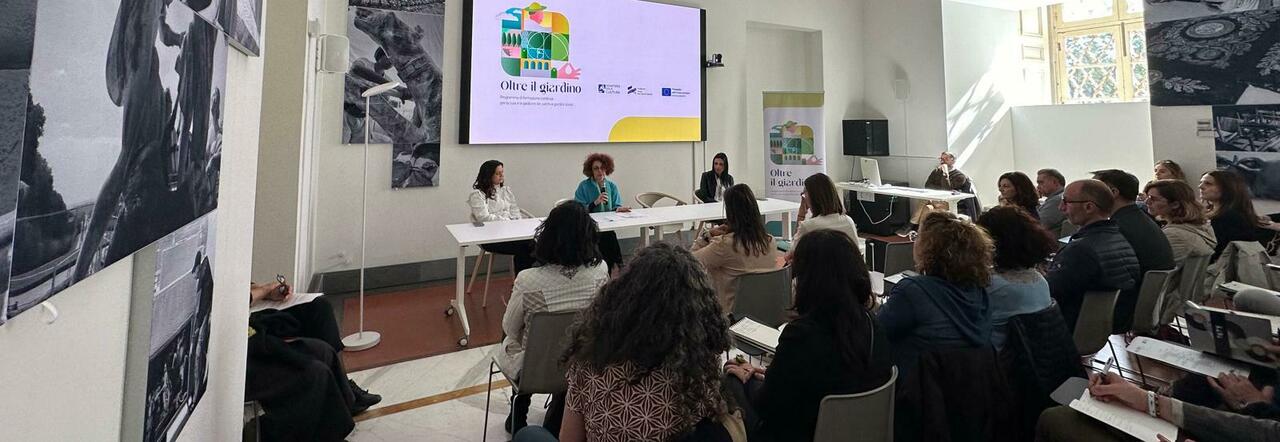Beyond the Garden: Professional Training at the Royal Palace of Caserta

Friday 12 April 2024, 13:35 - Last updated :
15:34
2 Minutes of Reading
Today and tomorrow, the Royal Palace of Caserta hosts 'Beyond the Garden', a free continuous education and professional updating program on the care and management of historic parks and gardens. The initiative by the Ministry of Culture is promoted by Service VIII of the General Secretariat in collaboration with Service I of the General Directorate for Education, Research and Cultural Institutes, curated and realized by the Foundation School of Cultural Heritage and Activities, with the support of the Italian Parks and Gardens Association. It is a project funded by the EU within the framework of the PNRR Culture 4.0. 'Beyond the Garden. Maturing Skills' is reserved for 220 participants selected through a public announcement: theoretical knowledge on historic greenery is deepened on a regulatory, technical, design, management level and integrated with practical activities within parks and villas of the Italian cultural heritage, both public and private, to develop skills.
The Royal Palace of Caserta, along with the Royal Palace of Venaria, the National Museum of Villa Pisani, Villa Durazzo, the Garden of the Villa Medici at Castello, and Villa Buonaccorsi, is a chosen venue for 'Beyond the Garden. Maturing Skills', an executive course reserved for 220 participants selected through a public announcement. Theoretical knowledge on historic greenery is deepened on a regulatory, technical, design, and management level and integrated with practical activities. Direct confrontation with professionals working at the Royal Palace of Caserta and the prepared laboratory activities are aimed at the development of technical-specialist and transversal skills. 'The course,' the statement reads, 'is dedicated to professional figures whose training, so far, has covered heterogeneous disciplinary fields. It thus aims to build a solid and concrete knowledge base of the historic garden, in a scenario made complex today by relationships with environmental issues, new technologies, and the adoption of innovative management models.'
© ALL RIGHTS RESERVED
This article is automatically translated
This article is automatically translated
